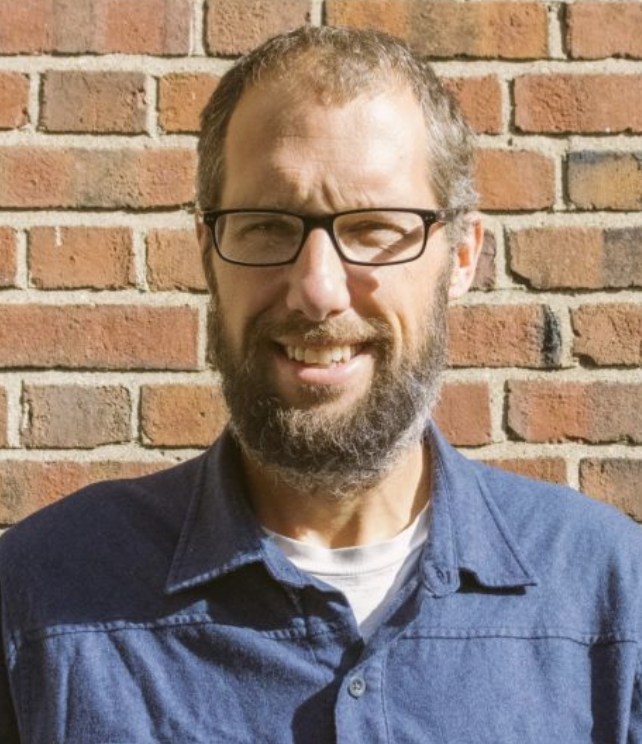The Fracking Frontier in the United States: A Case Study of Foreign Investment, Civil Liberties and Land Ethics in the Shale Industry
Authors: Eve Bratman, Ted Auch, and Bryan Stinchfield
Abstract: This article provides a fresh perspective on the unconventional oil and gas (hydraulic fracturing or ‘fracking’) industry in the Appalachian and Midwestern regions of the United States. It presents a case study of this in- dustry in relation to development, democracy and the environment. The art- icle utilizes neocolonialism as a heuristic device and analyses the fracking industry in relation to processes of capital expansion in resource frontiers. It identifies a two-pronged paradox at the heart of the US energy indepen- dence rhetoric. First, the political-economic reality is one in which the com- panies involved in promoting energy independence are in fact dependent on considerable amounts of foreign direct investment. Second, despite the pur- ported ‘freedom’ offered through such energy sources, many legal measures associated with the industry ultimately detract from civil liberties, rights to private land and local sovereignty over decision making. Centrally, this art- icle argues that political and economic relationships within this industry may undermine democratic participation and representative government. The case study demonstrates how relationships of coloniality in the fracking industry involve dynamics of land loss, ethical shifts in relation to land, and a lack of local property rights controls that are derivative of natural resource extraction on resource frontiers.
Data inconsistencies from states with unconventional oil and gas activity
Samantha Malone, Matthew Kelso, Ted Auch, Karen Edelstein, Kyle Ferrar, and Kirk Jalbert
Abstract: The quality and availability of unconventional oil and gas (O&G) data in the United States have never been compared methodically state-to-state. By conducting such an assessment, this study seeks to better understand private and publicly sourced data variability and to identify data availability gaps. We developed an exploratory data-grading tool - Data Accessibility and Usability Index (DAUI) - to guide the review of O&G data quality. Between July and October 2013, we requested, collected, and assessed 5 categories of unconventional O&G data (wells drilled, violations, production, waste, and Class II disposal wells) from 10 states with active drilling activity. We based our assessment on eight data quality parameters (accessibility, usability, point location, completeness, metadata, agency responsiveness, accuracy, and cost). Using the DAUI, two authors graded the 10 states and then averaged their scores. The average score received across all states, data categories, and parameters was 67.1 out of 100, largely insufficient for proper data transparency. By state, Pennsylvania received the highest average (x D 93.5) and ranked first in all but one data category. The lowest scoring state was Texas (x D 44) largely due to its policy of charging for certain data. This article discusses the various reasons for scores received, as well as methodological limitations of the assessment metrics. We argue that the significant variability of unconventional O&G data—and its availability to the public—is a barrier to regulatory and industry transparency. The lack of transparency also impacts public education and broader participation in industry governance. This study supports the need to develop a set of data best management practices (BMPs) for state regulatory agencies and the O&G industry, and suggests potential BMPs for this purpose.
The Human Right to Water and Unconventional Energy
Robert Palmer, Damien Short, and Ted Auch
Abstract: Hydraulic fracturing for oil and gas is an emotive subject, generating passionate arguments both pro and con. Some scholars argue that a ‘human right to water’ (HRW) approach could usefully enshrine in law the priority of human needs over industrial uses, in hydraulic fracturing and other sectors. This chapter explores the existing status of the HRW in international law and in the constitutions and statutes of some nations around the world. It appears that attempts to link struggles over HF’s impact on water resources with the HRW have so far foundered on a lack of clear unambiguous HRW declarations that can be tried in courts of law.
Community-based participatory research for low-cost air pollution monitoring in the wake of unconventional oil and gas development in the Ohio River Valley: Empowering impacted residents through community science
Garima Raheja, Leatra Harper, Ana Hoffman, Yuri Gorby, Lyssa Freese, Brendan O’Leary, Nathan Deron, Shannon Smith, Ted Auch, Melissa Goodwin, and Daniel M Westervelt
Abstract: Belmont County, Ohio is heavily dominated by unconventional oil and gas development that results in high levels of ambient air pollution. Residents here chose to work with a national volunteer network to develop a method of participatory science to answer questions about the association between impact on the health of their community and pollution exposure from the many industrial point sources in the county and surrounding area and river valley. After first directing their questions to the government agencies responsible for permitting and protecting public health, residents noted the lack of detailed data and understanding of the impact of these industries. These residents and environmental advocates are using the resulting science to open a dialogue with the EPA in hopes to ultimately collaboratively develop air quality standards that better protect public health. Results from comparing measurements from a citizen-led participatory low-cost, high-density air pollution sensor network of 35 particulate matter and 25 volatile organic compound sensors against regulatory monitors show low correlations (consistently R2 < 0.55). This network analysis combined with complementary models of emission plumes are revealing the inadequacy of the sparse regulatory air pollution monitoring network in the area, and opening many avenues for public health officials to further verify people’s experiences and act in the interest of residents’ health with enforcement and informed permitting practices. Further, the collaborative best practices developed by this study serve as a launchpad for other community science efforts looking to monitor local air quality in response to industrial growth.
Energy Security, International Investment, and Democracy: The Case of the United States Shale Oil and Gas Industry
Bryan T. Stinchfield, Ted Auch, and Eve Bratman
Abstract: Proponents of the US shale oil and gas industry argued that American citizens’ economic prosperity and national security were at stake if the industry was not rapidly expanded. Following copious amounts of a certain type of “patriotic” rheto- ric, the industry grew rapidly. Simultaneously, foreign ownership of US shale industry infrastructure occurred in tandem with calls for new policies and laws to limit US citizens’ democratic rights with regard to the industry’s activities. As a result, we argue that the development of the US shale industry has weakened national security by creating negative security externalities and eroding democratic values. We offer implications for other democratic societies rich in natural resources.
Proposed Pipelines and Environmental Justice: Exploring the Association between Race, Socioeconomic Status, and Pipeline Proposals in the United States
Johann Strube, Ted Auch, and Brian C. Thiede
Abstract: The current natural gas and oil boom in North America requires new pipelines, which pose environmental risks from wellheads to their des- tinations. The environmental justice literature suggests that ethno-racial minorities, populations with low socioeconomic status, and rural communi- ties are disproportionally exposed to risks associated with potentially harm- ful land uses. Using data from the American Community Survey’s 2015 five-year estimates and data on the route of proposed pipelines compiled by The FracTracker Alliance, this study tests whether the above assumptions are true for proposed FERC-permitted natural gas transmission pipelines in the United States for which planned routes have been made available. The results of logistic regression models provide only limited, and in some cases contradictory, support for these hypotheses. Although an increased share of highly educated residents significantly decreases the likelihood of a pipeline proposal in a census tract, a higher poverty rate also significantly lowers this probability. Likewise, the share of Black and Hispanic residents is significantly and negatively associated with pipeline proposals. However, reliable routing data are needed to test whether this holds true for built pipelines, but these data are considered confidential and thus inaccessible in the United States.
Fracked gas is NOT a bridge Fuel or Green Energy
Randi Pokladnik
Abstract: The Paris Accord’s target of keeping the maximum global temperature rise this century at two degrees Celsius above pre-industrial levels seems an almost impossible goal as our leaders are failing to address the crisis. The Russian Arctic has reached 100.4 F, the highest temperature since record-keeping began in 1885. This region, according to NOAA “is seeing atmospheric warming since the mid “1990s at more than twice the magnitude of global mean temperatures.” For many years both sides of the political aisles have been telling us that natural gas is a “bridge fuel.” They note the lower amount of carbon dioxide emissions from combustion of gas over coal and diesel. But, even though Ohio’s HB507 has labeled fracked gas as a green energy source; it is not.
Incineration isn’t a solution to our waste problems
Randi Pokladnik
Abstract: Years ago, one of the weekly chores of many families was to burn trash in a metal drum or barrel. They did not have regular garbage pick-up, especially those living in the rural areas. Some areas today still do not have garbage pick-up. We had one of those barrels near the back of our yard and I remember my dad burning our trash. It was quite remarkable that in a few hours, all that remained of a week’s worth of garbage was a pile of ash. However, burning our waste is really not a safe or sustainable way to address the issue.
The Truth about Polystyrene
Randi Pokladnik
Abstract: Single-use plastics have increased significantly as a result of the Covid-19 pandemic. Plastic cups, trays, and utensils along with personal protective equipment such as masks and gloves were being used and discarded at an enormous rate. In a recent study published in Chem Engineering Journal, it was estimated that in some cases, hospital wastes have increased by 350 percent. Hospitals as well as some communities are finding it hard to deal with the massive increase. Carelessly discarded face masks and other PPE trash are washing up on beaches and floating in waterways. Pre-Covid-19, cities including Chicago and New York were considering banning restaurants from using single-use plastic for take-out, and requiring reusable dinnerware for dine-in service. But due to concerns over health and safety, these restrictions were put on hold and the use of plastics actually increased in the food service industry.
Scientific articles

Request the White Papers
Please complete the form and we'll email you a copy of the white papers








